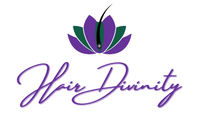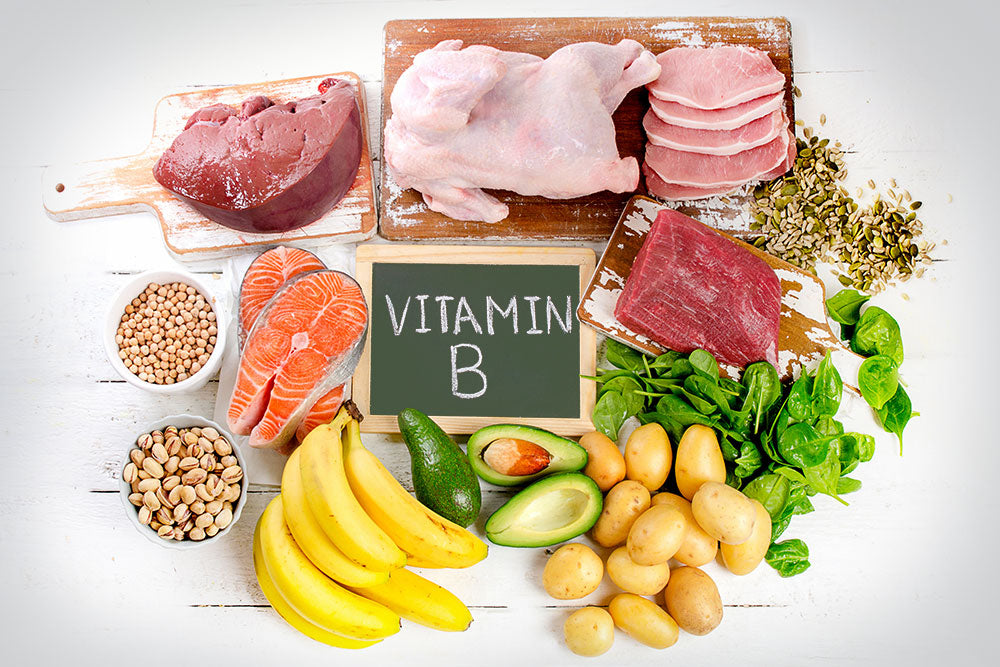If you've ever struggled with scalp issues, you know how frustrating they can be. The itchiness, the flakes, and sometimes even the discomfort can turn a good hair day into a not-so-great one real fast.
In my practice, I've seen my fair share of scalp conditions from dandruff to psoriasis and different forms of hair loss. And you know what I've found? A common thread among many of my clients with these issues is a deficiency in B vitamins. It's a trend that is hard to ignore and has led me down the rabbit hole of understanding how these vitamins impact our scalp health.
B vitamins are like the bosses of the nutrient world. They are involved in everything from energy production to cell growth. And, as it turns out, they're crucial for maintaining healthy skin and hair. Let's dive into how these vitamins work their magic on our scalps and why making sure you're getting enough of them could be a game-changer for your scalp health.
The B Vitamin Family and Scalp Health
The B vitamin complex includes several members, each with unique benefits for the scalp and hair:
-
Biotin (Vitamin B7) is the star of the hair health show, widely recognized for its role in hair strengthening and growth. Biotin's contribution to keratin production, a protein fundamental to hair and nail structure, makes it a critical nutrient for preventing hair loss and promoting hair health.
-
Niacin (Vitamin B3) enhances scalp circulation, bringing more oxygen and nutrients to hair follicles. This boost in blood flow can invigorate the scalp and encourage stronger, healthier hair growth.
-
Pantothenic Acid (Vitamin B5) aids in moisturizing and soothing the scalp, reducing dryness, flakiness, and itching. It also helps to build hair flexibility, strength, and shine, preventing hair damage and loss.
-
Folic Acid (Vitamin B9) and Vitamin B12 work together to support the production of red blood cells, which carry oxygen to the scalp and hair follicles. Adequate oxygenation is crucial for the health and maintenance of scalp cells and may aid in preventing hair loss.
-
Riboflavin (Vitamin B2), Vitamin B6, and Thiamine (Vitamin B1), though less directly connected to hair health, play vital roles in energy metabolism and the synthesis of proteins, including keratin. This indirect support helps maintain a healthy scalp environment conducive to hair growth and health.
- Diversify Your Diet: Incorporate a variety of B-vitamin-rich foods into your meals. Leafy greens, eggs, nuts, legumes, whole grains, meat, and dairy products are excellent sources.
- Consider Supplementation: If dietary restrictions or preferences make it challenging to get enough B vitamins from food alone, supplements can help fill the gap. However, it's crucial to consult with a healthcare provider before starting any supplementation.
- Mind Your Gut Health: B vitamins are absorbed in the gastrointestinal tract, so a healthy gut is vital for optimal nutrient absorption. Probiotics and prebiotic-rich foods can support gut health and, consequently, nutrient absorption.
Final Thoughts
While the journey to a healthy scalp and vibrant hair is multifaceted, incorporating a balanced diet rich in B vitamins is a foundational step. These nutrients not only support the structural integrity of hair but also enhance scalp health, creating an optimal environment for hair growth. By paying attention to our nutritional intake, particularly the diverse roles of B vitamins, we empower ourselves to foster not just a healthier scalp, but overall well-being.


